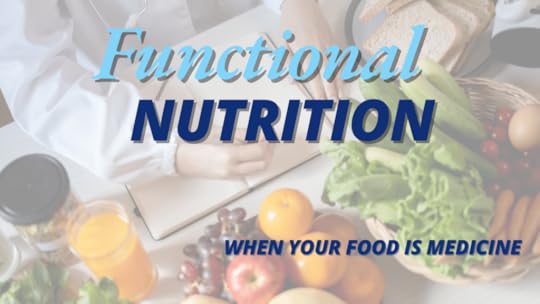Functional Nutrition: Using Food as Medicine

Throughout history, humankind has often turned to nature for cures and comfort. The concept that food serves not just to nourish but also to heal is both ancient and revolutionary. Now, as science converges with centuries-old wisdom, we’re witnessing the emergence of functional nutrition—an approach that sees food as a complex, purposeful ally in the journey toward health. This philosophy harnesses the innate qualities of certain foods to support bodily functions and mitigate ailments, serving as a bridge between our inner biology and the external world.
What Is Functional Nutrition?Functional nutrition is far more than a regimen of restrictive diets or calorie counting. Think of it as a bespoke health approach, one that respects individual differences, recognizing that each person’s body is as unique as a fingerprint. At its core, functional nutrition aims to address the intricate root causes of health issues, considering the body as a dynamic ecosystem in which each part affects the whole.
Where conventional diets may focus simply on calories or macros (proteins, fats, and carbohydrates), functional nutrition weaves together nutrients in harmony with the body’s needs. It’s an approach designed to restore balance, drawing on nutrient-rich foods to support healing, much like an artist carefully selecting colors to complete a masterpiece.
Key Principles of Functional NutritionTo better understand the ethos of functional nutrition, let’s delve into its foundational principles:
Bioindividuality: Imagine the complexity of one’s biology—genetics, lifestyle, environment, and mental health—all intricately intertwined. Functional nutrition honors this individuality, crafting dietary recommendations to suit the unique requirements of each person.Root Cause Approach: Unlike methods that merely skim the surface, functional nutrition digs deep, seeking to identify and address the underlying imbalances or deficiencies behind symptoms, often through nutrition and lifestyle adjustments.Food as First-Line Therapy: This philosophy treats food as an essential tool in healthcare. It’s a philosophy that says, “Start with the kitchen before the pharmacy.” In many cases, nutrient-rich foods may support the body’s healing processes without the need for pharmaceuticals.Functional Nutrition for Common AilmentsLet’s explore some common health challenges and how functional nutrition offers targeted, supportive solutions:
1. Inflammation
Chronic inflammation has been called the silent flame, an unseen force linked to conditions such as arthritis, cardiovascular disease, and even certain cancers. Functional nutrition views inflammation as both a culprit and a guide, directing attention toward foods that soothe rather than stoke this hidden fire.
Key Nutrients: Omega-3 fatty acids, antioxidants, and polyphenols
Recommended Foods: Fatty fish (salmon, sardines), turmeric, leafy greens, berries, and olive oil
Example: Turmeric, often referred to as “nature’s golden remedy,” contains curcumin, a compound so potent it has been likened to anti-inflammatory drugs in its ability to ease inflammation. Regularly incorporating turmeric into meals or taking it as a supplement can be a balm for inflammatory conditions.
The digestive system, often called our “second brain,” influences everything from our immune response to mood regulation. Functional nutrition attends to the gut’s needs, utilizing prebiotic and probiotic foods to support a balanced microbiome and ease issues like IBS or leaky gut.

Key Nutrients: Fiber, probiotics, and prebiotics
Recommended Foods: Yogurt, kefir, kimchi, asparagus, bananas, and whole grains
Illustration: Probiotic-rich foods, such as yogurt and kimchi, act as peacekeepers for the gut. They replenish beneficial bacteria, balancing the microbiome much like a well-tended garden. Prebiotic foods like bananas and asparagus serve as nourishment for these bacteria, fostering a healthy environment for gut flora.
3. Energy and Vitality
Energy—true, sustainable energy—cannot be drawn from caffeine alone. For those who find themselves constantly tired, functional nutrition offers nutrient-dense foods that support the body’s natural energy production, filling in gaps that may cause sluggishness.
Key Nutrients: B vitamins, iron, magnesium, and antioxidants
Recommended Foods: Lean meats, nuts, seeds, dark chocolate, and leafy greens
Illustration: Dark chocolate, a beloved indulgence, is also rich in magnesium—a mineral vital to energy production and stress reduction. When enjoyed in moderation, it serves not only as a treat but as a source of enduring energy.
4. Stress and Mental ClarityJust as our minds influence our bodies, so do our diets influence our minds. The concept of food as brain fuel takes center stage in functional nutrition, emphasizing nutrients that bolster mental resilience and alleviate the impacts of stress.

Key Nutrients: Omega-3s, magnesium, B vitamins, and antioxidants
Recommended Foods: Walnuts, fatty fish, whole grains, spinach, and dark leafy greens
Illustration: Omega-3 fatty acids, found abundantly in fatty fish, are essential for brain health, much like oil to a finely-tuned engine. Studies suggest they may help to reduce symptoms of anxiety, supporting mental clarity and emotional balance.
5. Skin Health
Functional nutrition celebrates the skin as the body’s reflection of internal health. Foods rich in antioxidants, healthy fats, and vitamins nourish the skin from within, promoting a radiant complexion and fighting signs of aging.
Key Nutrients: Vitamin C, vitamin E, beta-carotene, and healthy fats
Recommended Foods: Berries, nuts, carrots, and avocados
Example: Vitamin C, often found in vibrant berries, is a crucial component of collagen production, the protein that keeps skin supple and youthful. Consuming these fruits regularly is akin to giving the skin a natural, gentle polish from the inside out.
Practical Tips for Adopting Functional NutritionTransitioning to a functional nutrition approach need not be an overwhelming overhaul. Here are some gentle steps to begin:
Prioritize Whole Foods: Think of whole foods as nature’s perfected recipes. They’re often more nutrient-dense and harmonious with the body’s needs than processed alternatives.Mindful Meal Prep: Preparing meals in advance allows one to consciously choose nutrient-rich ingredients, reducing the temptation to reach for convenient but less nourishing options.Seek Guidance: Working with a nutrition professional, especially one trained in functional medicine, can personalize this journey, aligning it with individual goals and health needs.
Functional nutrition is more than a trend—it is a intentional, well-rounded approach that honors the human body’s complexity and wisdom. By choosing foods that address underlying health issues, we empower ourselves to take health into our own hands. In a world often quick to medicate, functional nutrition reminds us to return to nature’s pantry, discovering remedies that are both timeless and profoundly effective.
Learn more about functional nutrition:National Institutes of Health (NIH) – Nutrition & Digestive Diseases
Provides extensive research on nutrition’s impact on health, including studies on inflammation, gut health, and chronic diseases.Website: nih.govThe Journal of Functional Foods
Peer-reviewed studies and articles on functional foods and bioactive compounds in disease prevention and health promotion.Website: sciencedirect.com/journal/journal-of-functional-foodsAmerican Journal of Clinical Nutrition (AJCN)
Articles on diet, nutrition, and food science, often focusing on how specific nutrients impact health.Website: academic.oup.com/ajcnInstitute for Functional Medicine (IFM)
Resources and guidelines on the principles of functional medicine, including case studies and nutrition insights.Website: ifm.orgPubMed – Nutrition and Functional Health Studies
A comprehensive database of studies on nutrition, inflammation, digestive health, and more.Website: pubmed.ncbi.nlm.nih.govHarvard T.H. Chan School of Public Health – Nutrition Source
Provides accessible information on nutrition science, with a focus on chronic diseases, mental health, and holistic wellness.Website: hsph.harvard.edu/nutritionsourceInternational Journal of Environmental Research and Public Health
Features studies on dietary interventions, bioindividuality, and environmental factors in health and wellness.Website: mdpi.com/journal/ijerphCleveland Clinic – Center for Functional Medicine
Articles and research updates from a functional medicine perspective, often addressing diet’s role in managing chronic conditions.Website: clevelandclinic.org/functional-medicineNutritionFacts.org
Evidence-based articles and videos on functional foods, nutrients, and holistic approaches to health, curated by Dr. Michael Greger.Website: nutritionfacts.orgPrecision Nutrition
Offers resources and articles on personalized and functional nutrition, with a focus on practical dietary applications. precisionnutrition.com


